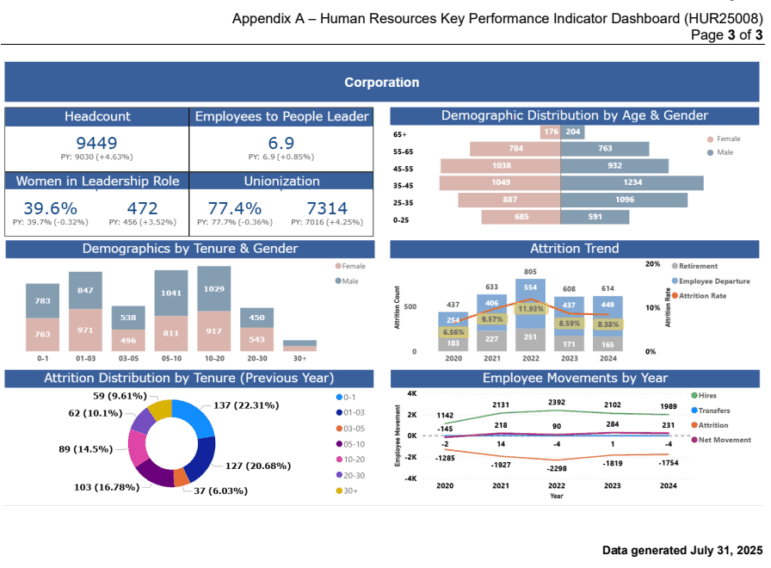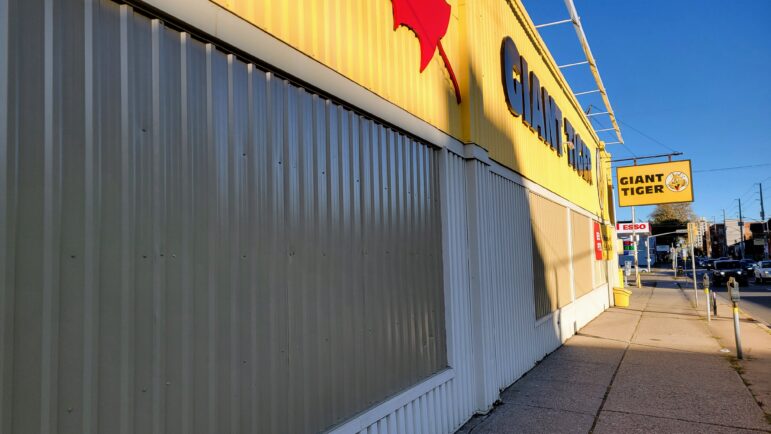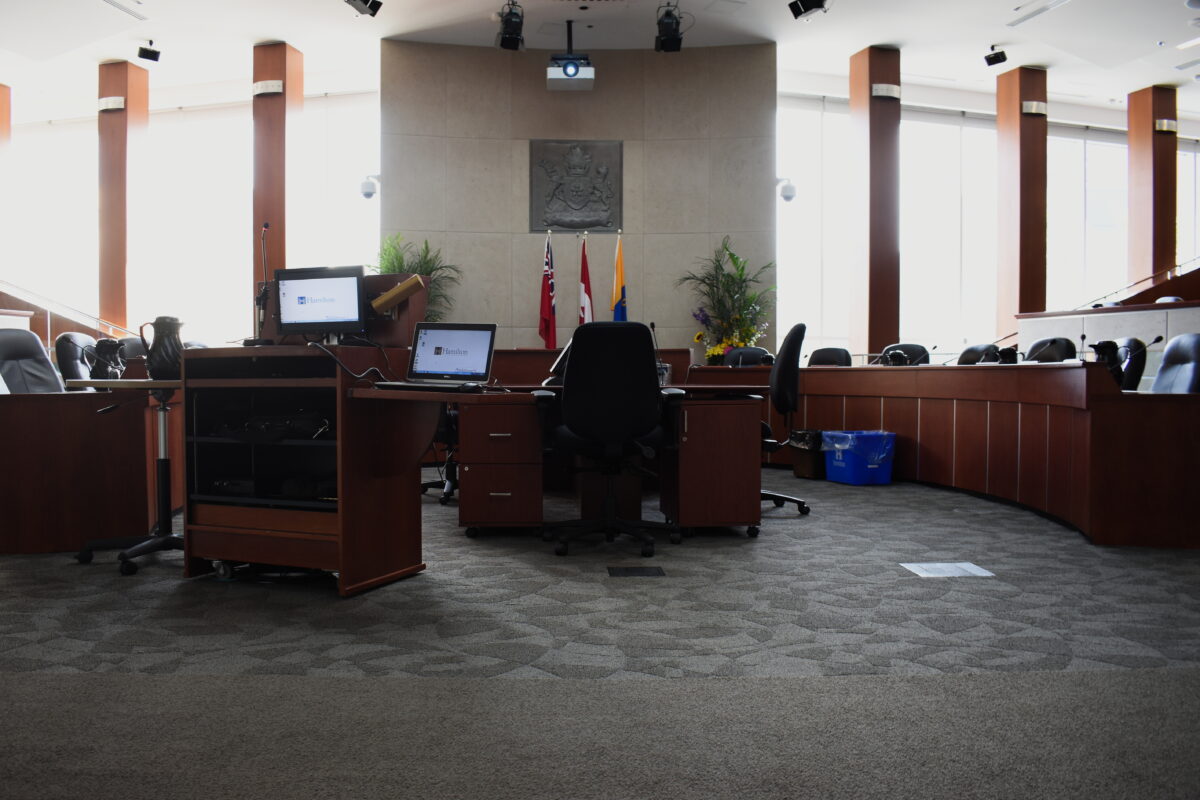It is October 26, 2025, exactly one year before Hamiltonians will render their verdict on this Council term.
In the coming days, the results of an opinion poll will be published, and we’ll know who the frontrunner for mayor is between Andrea Horwath, Chad Collins, and Keanin Loomis.
We do not require any polling to know what the ballot issues are. The Ward 8 by-election decisively told us that voters want action on addressing crime, visible disorder, and municipal property tax increases.
Rob Cooper won the by-election with 1,129 votes (19.3 per cent), with former Ward 14 Councillor Terry Whitehead a close second place with 1,042 votes (17.9 per cent). Third place was Barry Quinn with 917 votes (15.7 per cent), and fourth place was Lohifa Pogson Acker with 806 votes (13.8 per cent). Fifth place went to retired police officer Asad Khokhar with 396 votes (6.7 per cent).
Cooper and Whitehead focused their campaigns on these issues. Whitehead comically so, renting a Batmobile replica to position himself as Hamilton’s own Batman against crime. Khokhar touted his credentials as a former police officer. These candidates secured 44.0 per cent of the vote.
Third-place candidate Barry Quinn ran on similar issues, with more nuance. He emphasised his past experience on the Halton Police Board. Adding Quinn’s votes, 60 per cent of voters chose right-of-centre candidates on these issues.
Taxes = Cost of Living
Taxes are a cost-of-living issue, and to paraphrase James Carville, cost-of-living is the economy, stupid!
When voters say they are angry about taxes, they are discussing two underlying issues: City Hall spending that is not delivering value and the local economy cannot support City expenditures.
This term’s City Council did increase infrastructure spending and has begun addressing the infrastructure deficit. Had they stuck to the basics and added some social programs with measurable progress, their report card would be satisfactory to most voters.
Proponents of new spending (on any issue left or right) often like to compare the cost to that of a Starbucks latte. The inference is that a latte is an unnecessary luxury at a multinational chain. Here’s the thing, people are satisfied by the latte. There is no satisfaction in paying more taxes while receiving less service.

Council expanded the City’s bureaucracy by 12 per cent in their first two years, with plenty of new middle and upper management positions. The City’s headcount is now 9,449, up from 8,494 in 2022.
At the same time, they implemented an employee morale plan which included the largest-ever annual pay increases and the continuation of a flexible remote work policy which only requires bureaucrats to be physically present for parts of two days each week. Additionally, the City is spending more on consultants than ever before. If consultants were included, the City’s headcount is now over 10,000.
How many new managers? Council no longer receives the organizational chart, a change implemented in 2013 as part of a decade-long coverup of the employment by the City of the last known leader of the white supremacist National Front. City Council doesn’t know who is where, or what they are doing.
At what cost? Citing the cybersecurity failure, City management hasn’t provided financial statements since the end of the 2022 fiscal year. City Council has not demanded them, and not a single Councillor has moved a motion to require disclosure.
Just this week, because of the City’s ongoing failure/refusal to present financial statements, S&P Global Ratings downgraded Hamilton’s credit rating. The credit downgrade means Hamiltonians will pay more for the City’s debt financing.
There is no escaping that voters want responsible spending control and value.
2026 to 2030 Council Will Need to Cut Spending
The 2027 City of Hamilton budget is already unsustainable.
The 2026 budget begins with a plan to increase spending by 10.6 per cent. Mayor Andrea Horwath has issued a “Hold The Line” mayoral directive stating the tax levy should only increase by 4.25 per cent. The 6.35 per cent gap will be bridged using a combination of creative accounting and draining reserves. The 6.35 per cent will be transferred onto an already projected 6.7 per cent 2027 tax levy increase.
The police budget illustrates how artificially lowering the tax levy increase in one year creates an automatic increase for the next. Last year, 2025, the tax levy increase was 5.70 per cent. The total spending increase was actually 10.89 per cent.
For 2026, police require a 7.5 per cent tax levy increase just to cover last year’s spending increase. Presently, police are seeking an 8.62 per cent levy increase while planning to increase overall spending by 9.65 per cent. They will use further accounting methods to get close to “Hold The Line,” adding to an already projected 8.93 per cent increase in 2027.
Cutting spending requires a four-year plan. Eliminated managers will need to be paid for two, sometimes three, years. This means the next Council will have to raise taxes to cover the inherent expense of this year’s “Hold The Line” budget while at the same time waiting three years for any cost savings from right-sizing the budget.
Good luck explaining all that within a one-minute campaign speech.

Crime = Disorder
Hamilton’s crime statistics show crime is decreasing over the long-term. Any candidate who wishes to go door-to-door and pontificate on statistics is free to waste their time losing. Crime is not the actual reason people are voting for ‘Tough on Crime’ candidates; they are voting in response to disorder.
Voters want to hear what candidates will do about it.
A few weeks ago, I attended a neighbourhood safety meeting. The local school parent council chair was asking for action to address illicit drug use on the children’s playground equipment. The playground is no longer safe due to discarded needles, meth pipes, and other hazardous waste. The purpose of a playground is kids’ enjoyment. The immediate action needed is the City cleaning the playground. After this, candidates need to say how they will address the underlying issues, while at the same time being challenged by limited budget resources.
To provide another example of disorder, the Downtown Hamilton Giant Tiger store had to cover its windows with metal sheeting following repeated window shatterings committed by a person who lived encamped in nearby parks. Even during Hamilton’s most downtrodden days during the late 1990s to early 2000s economic downturn, businesses did not have to lock their doors or cover their windows.
Open drug use, young offenders committing crime sprees, people being shot and killed just waiting for a bus. Disorder is tangible, it is real. Yes, it is a multi-jurisdictional problem. It is true the municipality cannot solve it alone. These truths are not self-evident, and candidates need to outline a plan for disorder. Voters are not stupid. They can handle complexity. Nobody is seeking three-word slogans.
Can You Be Trusted to Govern and Make Challenging Decisions?
The 2022-2026 Council inherited deficits created by two decades of political neglect, two decades of short-term non-thinking, and two decades of poor leadership. The verdict on this term is forthcoming.
No matter, we already know the 2026-2030 Council will need to deal with a fiscal cliff. They’ll likely need to deal with an economic slowdown.
The people whose names will be on the ballot in one year’s time should be commended for stepping forward to face these challenges.
Voters will have the daunting challenge of deciding who to trust to make difficult decisions in what promises to be a thankless four-year term.
Production Details
v. 1.0.0
Published: October 26, 2025
Last updated: October 26, 2025
Author: Joey Coleman
Update Record
v. 1.0.0 original version

